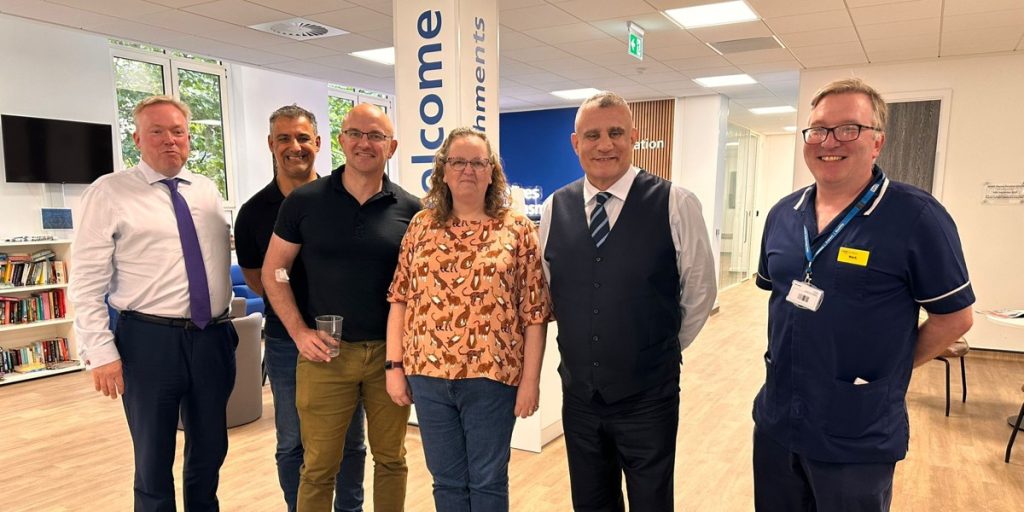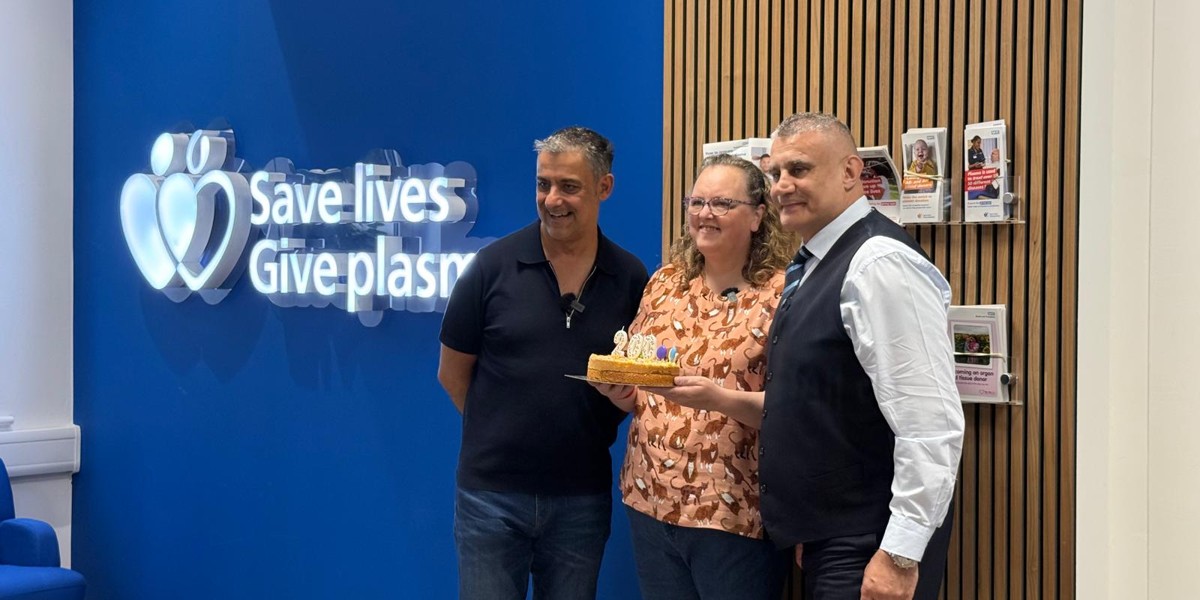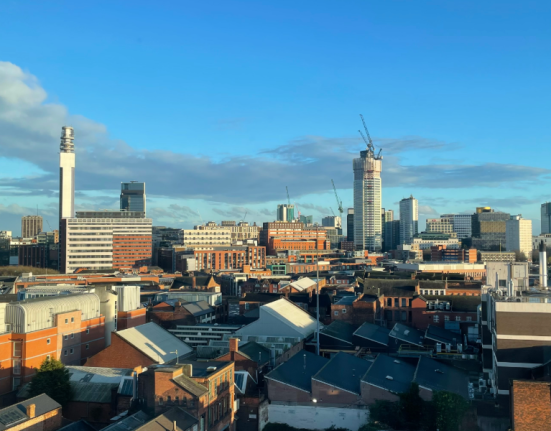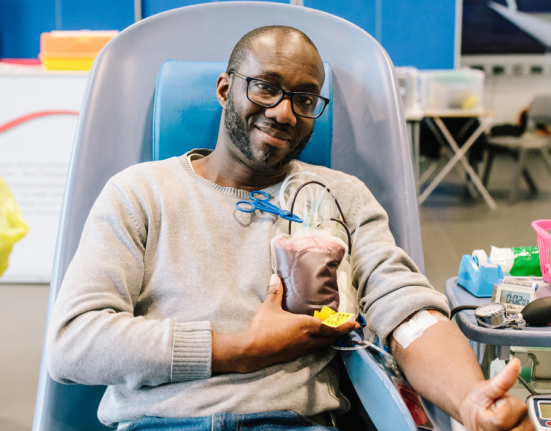Birmingham entrepreneur Paul Cadman was personally thanked as he made his 200th plasma donation by a woman whose life has been saved by the substance known as ‘liquid gold.’
In emotional scenes at the NHS Plasma Donor Centre on New Street in Birmingham, Michelle Pouton, who suffers from a rare blood condition, came in to congratulate and thank Professor Cadman, who has been giving blood and plasma for nearly 40 years.
Michelle, from Coventry, said: “I simply wouldn’t be here without plasma. I developed a really rare blood condition and without plasma exchange I wouldn’t be here. It saved my life.”
A family legacy
Cadman credits his dad, Ron, who gave blood for 50 years, as the inspiration for getting him into donating blood and plasma himself.
Cadman said: “It’s so moving to meet Michelle today. It really brings home why I and other donors do this. Donating blood and blood plasma really does save lives, and Michelle is one example.”
He added: “My dad was an inspiration and everyone looks up to their father. Dad had donated plasma for sort of 50 odd years and he was a smart guy who always used to wear a shirt and tie and he always used to proudly wear his blood donation badge.”
‘Liquid gold’
Plasma is the part of human blood that carries platelets, red blood cells and white blood cells around the body.
It makes up approximately 55% of a person’s blood and contains infection-fighting antibodies known as immunoglobulins, which are made into medicines to help people with rare diseases, immune disorders and genetic conditions.
Unlike donated blood, donated plasma does not have to be matched to the recipient’s blood type. Donated plasma builds the recipient’s antibodies and can be used, for example, to support cancer treatments, protect pregnancies and help babies’ hearts to continue to beat.
Others made donations including some debutants
Several of Cadman’s associates joined him in donating own plasma including Phil Upton of the BBC, Mike Hammond, CEO of the (UHB) University Hospitals Birmingham Charity, and even West Midlands News editor Simon Evans.

A simple process
Donating plasma is a relatively simple process. First of all, those donating undergo a vein check to see if their veins are suitable for the needle. Then donors are screened with tests to check they’re healthy enough to make a safe donation. If all goes to plan, then they’re hooked up to a large pump, samples are taken and then the blood is processed, with the plasma removed and other parts of the blood pumped back into the body.
Donating plasma saves lives
A beneficiary of plasma also surprised Cadman at the event. Michelle was given 150 doses of plasma medicine when she fell seriously ill with a very rare blood condition. Michelle said that it is thanks to donors like Paul that she is still alive.
A time for celebration
Paul was given a well deserved cake following the end of the ordeal and declared his victory against long-time friend Phil Upton after finishing his donation in a quicker time.
It’s easy
Evans, a first-time donor, said that despite his fear of needles he managed to do it and encouraged others to do the same.
“I’m insanely squeamish, so even the thought of a needle going into my vein makes me feel like I’m going to faint,” he said.
“But after some forceful but good-natured persuasion from Paul Cadman and learning more about the life-saving benefits of giving plasma, I put on my big boy pants and did it. And it wasn’t as bad as I expected. I’d certainly encourage others to do it too – and become life-savers.”
‘It’s crucial’
Speaking to those involved, one thing became explicitly clear. These centres save lives and are fundamental to so much of a hospital’s capability. Mike Hammond of the UHB charity make links between the demand in hospitals and the supply in donor centres whilst plasma beneficiary Michelle said ‘it crucial’ that plasma centres like then one in Birmingham receive funding and support.
Mike Hammond, CEO of the UHB charity, said: “We see hundreds of people every day who would die without blood and plasma donations.”
NHS Blood and Transplant are constantly urging people to come forward and donate plasma and blood. It’s quick and easy and saves lives.
You can learn more about donating plasma at: https://www.blood.co.uk/plasma/






